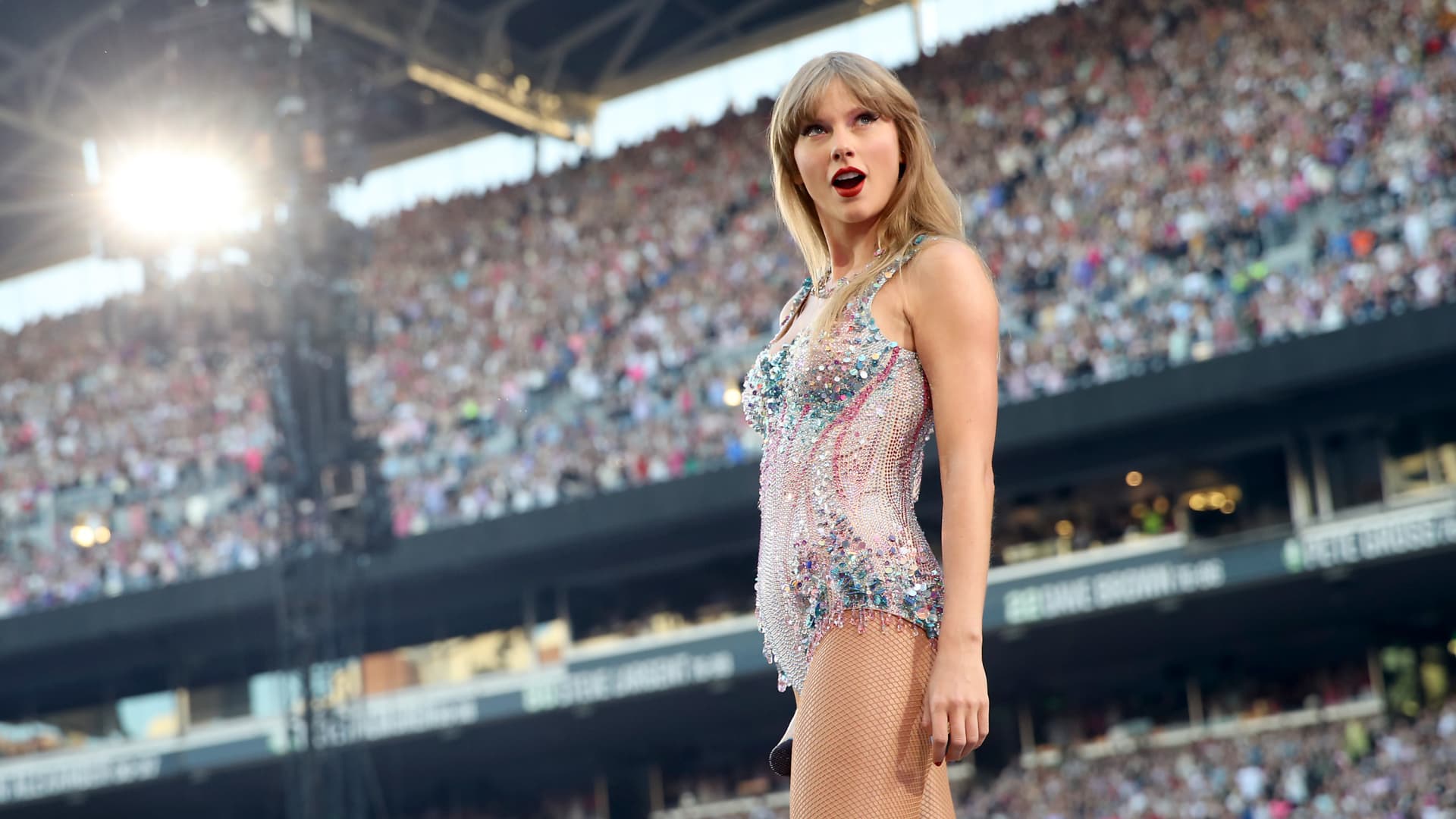Songs from artists signed to Universal Music Group have started disappearing from TikTok after the two sides failed to agree a new deal over content licensing, sparking a public spat.
Music by artists including Taylor Swift and Drake was no longer available on TikTok when CNBC checked on Thursday morning.
A licensing agreement between UMG and TikTok, which is owned by Chinese tech giant ByteDance, expired on Wednesday.
UMG accused TikTok of bullying and intimidation in its contract negotiations. UMG alleged TikTok proposed paying its artists and songwriters “at a rate that is a fraction of the rate that similarly situated major social platforms pay.”
The music label also alleged TikTok is allowing its platform to be “flooded with AI-generated recordings.”
TikTok responded by saying UMG is putting its “own greed above the interests of their artists and songwriters.”
A UMG spokesperson told CNBC on Thursday that since the licensing agreement expired, “TikTok is now removing the audio.”
TikTok was not immediately available for comment when contacted by CNBC.
Tiktok has become a platform that can make songs, even those that are older, go viral if they are picked up and used on videos that users post on the platform.
But labels have debated whether TikTok is paying enough to the artists whose songs are on the short video app.
UMG said only 1% of its total revenue comes from TikTok, despite the social network’s “massive and growing user base, rapidly rising advertising revenue and increasing reliance on music-based content.”
